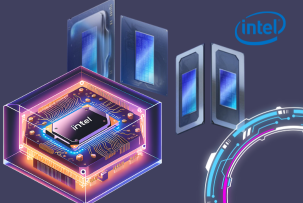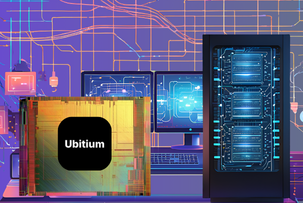Unveiling the Power of Debian 12: A Comprehensive Guide to the Latest Features and Enhancements
14:39, 16.06.2023
Debian is considered to be one of the most popular and reliable Linux distros, with a long history of reliability and security. Debian 12, codenamed "Bookworm", is the latest release of this venerable OS, and it comes with many new features and enhancements that will delight both new and experienced users.
The new Debian version is now also available on HostZealot, and to inform you about why you might want to install it on your server, we’ve prepared the following blog post, where we will explore some of the most notable changes and improvements in Debian 12.
Let's dive in and see what Debian 12 has to offer!
Features of Debian 12
Debian 12, codenamed "bookworm," was officially released on June 10th, 2023, after a development period of 1 year, 9 months, and 28 days. This highly anticipated stable version of the Debian OS brings numerous updates, improvements, and exciting features to the open-source community.
Non-free-firmware
One of the significant changes in Debian 12 is the introduction of a separate archive area called "non-free-firmware." This new area allows for the segregation of non-free firmware packages from other non-free packages. The separation enables the creation of various official installation images, enhancing flexibility and ease of use for users.
A wide range of desktop environments
Debian 12 "bookworm" offers a wide range of desktop environments to cater to diverse user preferences. It includes popular options such as GNOME 43, KDE Plasma 5.27, LXDE 11, LXQt 1.2.0, MATE 1.26, and Xfce 4.18. With these choices, users can fine-tune Debian to suit their workflow and aesthetic preferences.
Package availability
In terms of package availability, Debian 12 adds over 11,000 new packages, resulting in a total count of 64,419 packages. To maintain a streamlined and efficient system, over 6,200 old packages have been discontinued. Additionally, 43,254 packages have received updates in this release, ensuring that users have access to cutting-edge software versions.
Language support
Debian 12 places a strong emphasis on language support. The release boasts an extensive selection of translated man pages, with lots of languages supported, including Czech, Danish, Greek, Finnish, Indonesian, Macedonian, Norwegian (Bokmål), Russian, Serbian, Swedish, Ukrainian, and Vietnamese. Notably, all systemd man pages have been finally translated into German.
Area-specific enhancements
For specific use cases, Debian 12 introduces notable enhancements. The Debian Med Blend, catering to the medical field, now includes the shiny-server package, simplifying the development of scientific web applications where R programming language is involved. The Debian Astro Blend, aimed at astronomers, enthusiasts, and hobbyists, incorporates updates to various software packages, including astap and planetary-system-stacker for image stacking and astrometry resolution, as well as openvlbi, an open-source correlator.
Security
Security is a top priority for Debian, and Debian 12 bookworm addresses this by reintroducing support for Secure Boot on ARM64 hardware. Users of UEFI-capable ARM64 systems can now benefit from the secure boot feature, enhancing the overall system security.
The release is also accompanied by updated versions of various software packages essential for various tasks. Some notable examples include Apache 2.4.57, BIND DNS Server 9.18, Cryptsetup 2.6, Dovecot MTA 2.3.19, Emacs 28.2, GIMP 2.10.34, GNU Compiler Collection 12.2, GnuPG 2.2.40, Inkscape 1.2.2, LibreOffice 7.4, Linux kernel 6.1 series, LLVM/Clang toolchain 13.0.1, 14.0, and 15.0.6, MariaDB 10.11, Nginx 1.22, OpenJDK 17, OpenLDAP 2.5.13, OpenSSH 9.2p1, Perl 5.36, PHP 8.2, Postfix MTA 3.7, PostgreSQL 15, Python 3.11.2, Rustc 1.63, Samba 4.17, systemd 252, and Vim 9.0, among others.
Support of hardware architectures
Debian 12 bookworm maintains its commitment to providing a versatile OS that supports various hardware architectures. Nine architectures are supported by the new Debian: 32-bit PC (i386), 64-bit PC (amd64), 64-bit ARM (arm64), ARM EABI (armel), ARMv7 (armhf), little-endian MIPS (mipsel), 64-bit little-endian MIPS (mips64el), 64-bit little-endian PowerPC (ppc64el), and IBM System z (s390x). This broad range of supported architectures ensures that Debian remains accessible and usable across a wide array of devices.
Installation options
To make the testing and reviewing process easier, Debian 12 provides live images that allow users to test the OS without installing it. Additionally, various installation media types, including network installers, DVDs, and USB images, can be involved in different installation scenarios.
For existing users, upgrading from Debian 11 "bullseye" to Debian 12 "bookworm" is made straightforward using the APT package management tool. The release notes give detailed instructions and essential information regarding the upgrade process, facilitating the transition to the new version.
Conclusion
Debian, known for its commitment to the Debian Social Contract and Free Software, continues to be a vital pillar of the open-source community. As always, Debian encourages user feedback, bug reports, and contributions from the community to help further improve the OS and enhance the overall user experience.


